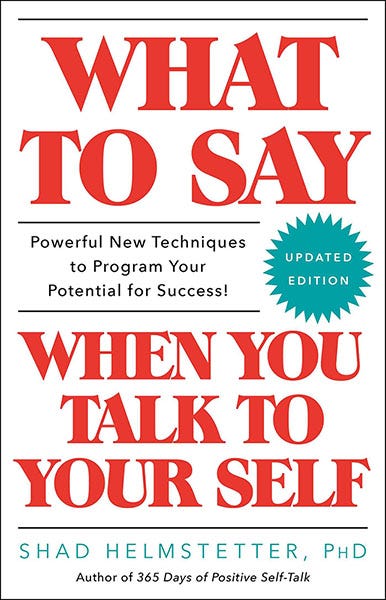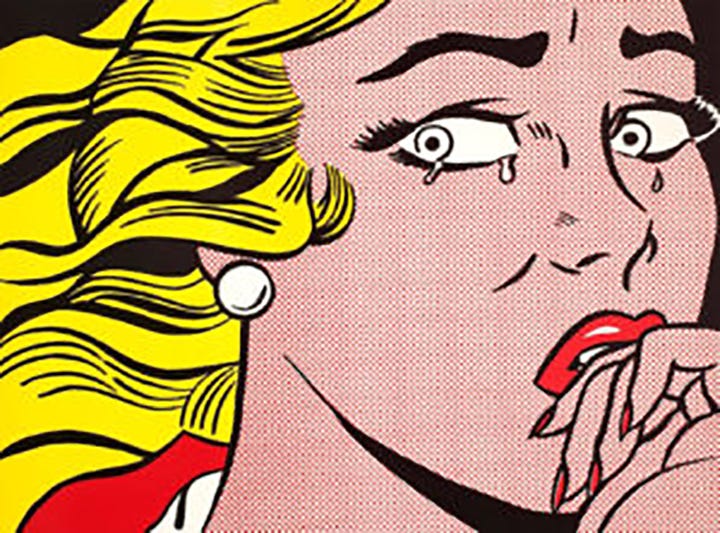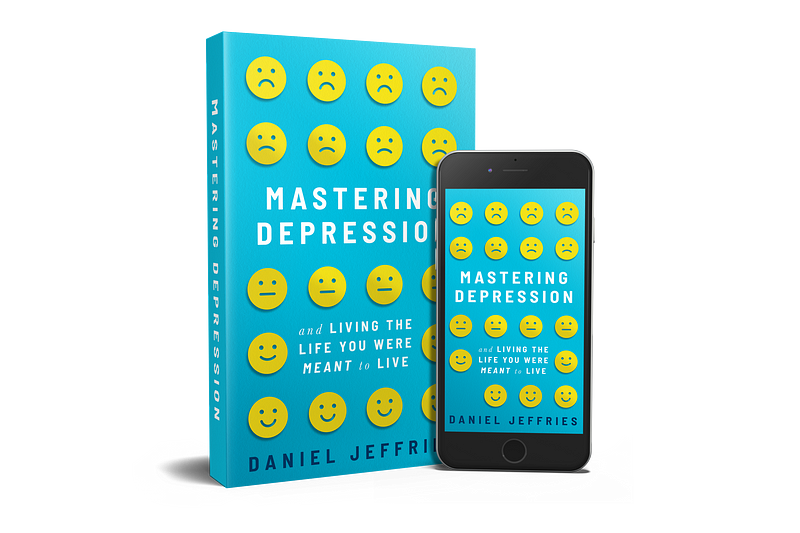Mastering Depression and Living the Life You Were Meant to Live — Part Two
###########################################
###########################################
Now you can also get the book that sprang from this article, a full length guide to changing your life now. You can also check out the first article in the series right here. Lastly, you can also listen to this article on Listle below, read by a voice actor, not an AI bot:
###########################################
It was the best of the times. It was the worst of times.
These last two years were the most amazing years of my life and the worst years too.
I traveled the world, found love, loss and ruin, ate incredible food in exotic locals, gave talks before audiences big and small and saw the readership on my blog soar.
I also faced every struggle imaginable, from lost friends and loved ones, to betrayals, to chaos on the road, to a heartbreaking fatigue that set in every time I had sling my heavy backpack on again and get on yet another plane.
But it didn’t stop there.
I had my favorite aunt get cancer and a long-time friend die of an overdose. I got the news about my friend at one in the morning, from another friend I’d lost touch with years ago. A month before I’d gotten into a bad fight with the friend who died and now we’ll never get a chance to say we’re sorry.
I’ve faced stalkers, jilted loves, high conflict personalities, and people who thought they found secret messages encoded in my writing.
And then there was a divorce that dragged on and on and on. Every month I’d wake up to another surprise charge that I couldn’t pay on my credit card as I watched my life’s savings go up in flames. I paid my wife’s lawyers to attack me and mine to defend me in a Kafkaesque nightmare of legal theft.
That’s just the tip of the iceberg. There were a thousand more cuts big and small, most of which will go with me to my grave.
And through it all my work suffered badly.
Because I was constantly on the road, I couldn’t find a safe, quiet space to write or get into the routine I needed to commune with the Muse. Instead of writing another novel, I spent a year endlessly writing the same first chapter and getting nowhere. My article production plummeted with the crypto markets as they went from boom to bust along with my fortune.
At times I felt like Caesar desperately holding my hands above my head as the assassins’ blades plunged into me again and again. I’d look up and find the people closest to me at the end of those daggers and whisper:
“Et tu, Brute?”
In the first article in this series, I wondered whether Anthony Bourdain just reached his limit one day?
Did he travel too far and too long? Maybe all he wanted was to go home and pet his dog and eat leftovers instead of another fancy meal with fancy people?
Everyone has a limit.
These last few years I came close to mine, my car spinning out of control on black ice.
This is the story of how I leaned into the swerve.
Reasons to Live Again
When I wrote the first article, I’d found ways to really manage my depression and my fears. I had an amazing routine and tremendous coping mechanisms that worked well for me. I was ready to take big risks and strike out on the waves for bold new adventures.
What I didn’t realize is that depression morphs and changes on you over time.
It adapts as you adapt.
When you conquer old fears there are new ones waiting for you gibbering in the dark around the bend.
And you have to adapt once more.
When the Buddha said “life is suffering,” he didn’t mean that every single, second of every day was suffering. He meant that whenever you solve one problem another one is already waiting in the wings. The real suffering comes from thinking that you’ll get to some point where you have no problems and everything is perfect.
But I’d forgotten that because in many ways my life was perfect. People were reading my writing all over the world. I made good money, had a wife that took care of everything while I wrote and provided for the family. I had three little cats that cuddled close to me every day as I looked to the stars and wondered about the meaning of life. I was getting invites to talk all over the planet and people flying me around to hear my words. It was strange and beautiful to have people adore my work after laboring for a decade in silence.
You’ll forgive me for thinking that the Buddha had it all wrong and that you could reach the end of all problems.
But like every delusion, it eventually crashes on the rocks when it comes into contact with reality. Nothing lasts forever.
I had the perfect life, right up until I didn’t.
Sometimes you don’t know what you’re missing and then it leaps out at you and everything changes in an instant.
There was a catalyst but like so many things in life it was just the final spark and not all that important in and of itself but it set my life on fire.
For all my success, I didn’t realize how gray my life had gotten. I had my work and the realm of the spirit and my pretty words, but my body was dying and my passion had died years ago. I was out of shape, despite eating pretty well and walking for one or two hours late at night almost daily. My body had somehow gotten used to the exercise and my weight had drifted from 185 to almost 200. My wife and I weren’t sleeping together and didn’t want to sleep together. I had an amazing little house in a beautiful neighborhood on an ideal street but I was bored and listless and wanting more without knowing how to get it.
It was amazing giving talks around the world and having people tell me I’d given the best speech of the night and wanting to talk to me but it was all so tiring too.
None of it felt real. And inside there was this nagging feeling that I didn’t deserve their compliments and I wished they would just leave me alone and in peace.
When I was writing I felt calm and pure and transcendent but everything else had a strange otherworldly quality, like I was living in a world of ghosts.
And then came the unexpected spark. Soon after I was setting the whole thing ablaze and creating havoc inside and out. I tore down my perfect life and started traveling the world with a fury and I launched into a divorce and a thousand other crazy actions all at the same time.
It was what I needed to leave my little nest and it was what I needed to destroy my life too.
And it was exactly what I needed to remold and rebuild myself into something new.
Through it all my depression changed. My fears changed. My struggles changed.
And I had to learn some new coping mechanisms and some new reasons to live and to keep going and living a big and bold and beautiful life anyway.
Becoming Your Own Best Friend
To start with I had to learn to care for myself a lot better.
I didn’t realize just how much until I started looking deeply at my life again and taking time to pause and let the dust settle. The last two years were hard on a scale that would have crushed most people. It was a like war on six fronts. I was trying to manage too many changes all at the same time. And through it all I developed a kind of PTSD, a hyper-vigilance, always ready for the next disaster, the next attack, the next threat.
And when I looked inside I was surprised to find something really, really wrong deep inside me that I missed. At first it was just a feeling, something I couldn’t put my finger on it. I caught flickering glimpses of what it was but the awareness of it disappeared as soon as I tried to catch it. It was like those little sparkles you sometimes see at the edges of your eyes on a bright summer’s day that disappear as soon as you look right at them.
But slowly, slowly the problem revealed itself.
It was how I talked to myself.
Especially when I was under stress.
The book “What to Say When You Talk to Yourself” identifies five kinds of self talk, two that are bad and three that are good. The book is pretty good as these kinds of things go. It’s got a little too much padding and a little too much set up and it tries a bit too hard to convince you that your brain is a biocomputer that you can reprogram. It’s a solid metaphor but incomplete too.
If our brains are computers they have a hell of a lot of bugs and random responses to problems that make them pretty terrible computers. When I hit the enter key on a real computer it does the enter function every time. When I want to have courage or take a bold action or get motivated my brain doesn’t always comply. But the book is still a good read if you’re looking to figure out what kinds of things you’re saying to yourself and maybe how to start changing them.
Yet the book misses one really important kind of self talk, a sixth kind, one that I found in my own head. That’s when you just beat yourself up inside like an abusive dad or mom. That’s the worst and most debilitating kind of self talk.
Whenever things went badly wrong, as they did so often the last few years, I ripped myself apart. I said vicious things to myself. You’re an idiot, a jackass, stupid, ugly, broken. You’re not good enough.
Even worse, I’d surrounded myself with people who didn’t hesitate to say the same or make up their own fun house mirror images of me when they were mad at me. I ingested their words as my own. And most of the time I didn’t even notice I was doing it. It was like a riptide that was always there below the surface, waiting to get triggered by some negative external stimuli and pull me under.
And even worse I didn’t know how to fix it.
In the past, I’d tried meditation and all the other little tools that the self-help gurus promised me as a magical elixir that would bring balance and peace to my turbulent existence. None of it stuck. None of it lasted.
Have you ever gone to see an electric self-help speaker and come out of there super motivated to change your life? You got fired up, got started, bought all the books and then fell short?
Or maybe you read a great book by one of the towering titans of motivation like Tony Robbins and you were ready to Awake the Giant Within? You visualized. Meditated. Did more Yoga. Lived in the now! Ate vegetarian/vegan/paleo. Exercised more. Practiced the power of positive thinking. Pictured a giant beach front mansion and a boat too.
And then a few days, or a few weeks, or a few months later your diet slips, or you’re not magically thinking positively all the time, or you’ve dreamed bigger and bigger but you’re still working a job you hate and you never took that vacation you really wanted or started the great American novel. That 10 part course you bought on changing your life is still on your phone, 75% left to listen to, and that best selling self-help book is gathering virtual dust at the bottom of your Kindle.
It seems like there are so many answers promising to make our lives better. Why don’t they? How have so many people failed to make all these amazing secret techniques work? And if they only work for a little while, what makes them stop working? What good are they if they fail us in the long run? Do they even work at all?
Remember the story of Gilgamesh? He travels the world, battling monsters, building an empire and looking for the elixir of eternal life. But as soon as he finally gets it at the very end, a sea serpent grabs it and sneaks away with it.
It’s the oldest story to have ever survived from the misty swirls of ancient history. And there is a reason it survived. It’s not a coincidence. The things that persevere through the ravages of time tend to be the most important lessons that people have learned throughout all time and that culture after culture saw fit to preserve.
And there is one lesson from the ancients in Gilgamesh that’s screamingly obvious:

There is no magical elixir.
And if there is, you can’t keep it for very long.
No matter how hard you look or how far you travel you will never find it or hold on to it if you do find it. It comes and it goes and it’s in the way that you use it while you have it.
It’s great to do yoga or workout or eat healthy. Don’t let me stop you. By all means keep meditating and working out and keep the body and mind fresh for the long haul. But all these things are just tools and that’s all they are.
For a small subsection of the population they really seem to work pretty well too. My father is one of those people. He’s super regimented and disciplined. He’ll work out with the same work out every day for five years and then just switch to a new one and do that one for ten. He’s said affirmations religiously for decades. He says they work. But I sometimes wonder if they just work for him because the act of doing something repetitive calms his mind rather than the affirmations actually doing all that much for him?
But who knows? I can’t be inside his mind, only mine. Each of us can only say what works for us. But we can observe other folks too and I’ve observed a lot of folks and never really found a panacea solution to any problem. The reason is really simple.
There aren’t any panaceas to our problems.
You absolutely should eat healthy and you’ll feel a lot better but that won’t take away the severe bouts of depression or the dark moments of life. And when we’re down and out can we really say that the yoga we did last week helped us today? I don’t think so. Those tools go in our toolbox but they can’t create lasting change in us.
We have to do that ourselves.
That only comes through a real breakthrough.
And real breakthroughs come from experience.
All the little painful lessons, the heartbreaks, the betrayals, the failures, the let downs go together like beads on the string. They add up, one by one, until finally they break us and remold us into something different. Only by going through them again and again and again do we end up finding a technique or an insight that works for us and for us alone. It’s an insight made specially for us by the Universe.
For me that insight came not in a blinding flash of white light with orchestral music but with one simple thought. After I’d lain awake all night once again worrying about everything that was wrong in my life and eviscerating myself, it suddenly hit me:
Would I talk to my best friend the way I talked to myself?
I imagined my closest friend coming to me with the same problems I was having and asking me for advice. Would I rip her apart and call her a loser and an idiot and tell her it was never going to work out and she should just quit now and stop fooling herself because she was worthless?
And the obvious answer was no.
I would patiently tell her she needed to see the problem differently, that she was a magnificent soul who was just caught up in a storm of mental and emotional turbulence. I would go through the problem and give her options and encourage her and listen to her.
Most importantly, I would be gentle with her and patient and loving.
So why was I treating myself differently?
Why was I talking to myself the way I would talk to my worst enemy?
Right then and there I knew I had to do better. I had to become my own best friend.
And so I started to catch myself whenever I started to lacerate myself on the inside and I said “Stop! What would I say to my best friend?”
It was slow at first, like starting a workout routine. If you’re terribly out of shape you don’t start running a marathon tomorrow or dead-lifting a thousand pounds. You start with one long walk and then another. Then maybe you add some pushups and sit-ups, a few at first and then a few more.
It doesn’t always work. It’s not perfect. It’s not a supernatural spell ripped from the pages of Harry Potter.
But through slow and steady repetition it’s started to work and work well. I catch myself much more often now. I notice when I’m not taking care of myself. I notice when I’m not being gentle with myself.
And that doesn’t mean I get a free pass for everything. I’m not talking about telling ourselves everything is all right all the time even when it’s not all right. It’s one thing to skip a workout or a healthy meal once in awhile or slip for a week or two or because of an injury. It’s another thing entirely letting yourself go back to the mental equivalent of drinking a liter of soda every day.
Being gentle does not mean being weak.
It means being understanding with yourself and helping yourself get back on the right track by talking to yourself the way you talk to your best friend. Sometimes you need a little tough love, sometimes you need to step back and be more cautious but it’s never necessary to rip yourself to shreds and run yourself down.
You can start being your own best friend right now.
Promise yourself that today.
Start by being gentle with yourself.
Then start changing the way you talk to yourself. Read some books on it. Notice how you are talking to yourself at your worst and at your best. Pay close attention. Then develop a competing voice that challenges the automatic thoughts in your mind. Talk back to the constant stream of words with a counter voice.
Here’s how you know it’s working for you with an example from my own life:
I often lay awake at night worrying and thinking. The downside of having a sharp mind and an active imagination is that your mind never really shuts up. When you’re resting, it wants activity. When you’re doing something, it wants to slow down. It’s always projecting into the future and trying to find solutions to problems real and imaginary. When it doesn’t have a real problem to solve it makes some up!
I’d been practicing being good to myself, talking to myself the way I would talk to a friend in the same situation and I was not making much progress at all. Like anything in life it takes time and effort to get right. It’s like working out or learning to draw or learning to write. At first you start off sucking at it and then you get a little better. Sometimes you face setbacks and it doesn’t really work at all.
When it comes to self talk that’s usually where you start beating yourself up again and thinking about quitting because you’ll never get it right. But this time I didn’t quit. I kept at it. I kept practicing because I knew I had no choice. My caretakers were all gone and I had to take care of myself. And if I ever wanted to attract a partner and someone to care for me again I had to care for myself first. So I kept at it.
And one night I was lying awake, crying, worried about the future and what I’d done and where I was going and what was the point?
That’s when something strange happened.
I calmed myself down.
A competing voice in my head chimed in when I was at my lowest, something that never happened. It was that best friend’s voice and it said, hey, hey slow down. You’re overthinking this and you’re tearing yourself apart. Stop that and stop it right now. Things are going to work out if you let them develop naturally. You got this. You can handle it and you will come out all right.
It was amazing and surprising and wonderful.
I’ve never stopped talking to myself that way since.
Learning to Suffer
Beyond self talk there’s another strange and unexpected lesson I needed to learn.
I had to learn how to suffer gracefully.
That probably seems a strange thing to say to someone who feels like they suffer all the time but let’s dive a little deeper and take a look at what I mean here.
Here’s the thing: If you’ve developed depression or other difficult challenges like alcoholism, you never really learned how to suffer well. You learned how to avoid suffering.
That’s because you faced so much of it early. Whether that was a hard upbringing, or emotional trauma, or you just have chemical makeup that made you intensely emotionally sensitive, it doesn’t matter all that much.
There are millions of factors that go into making us who we are and how we interpret the world and how we feel. What matters is that at some point you suffered so much that you started looking for ways to make it stop. Maybe you found drink or drugs or sex or watching too much TV or eating too much. Your mind, in a desperate attempt to make the constant pain end, latched onto something that seemed to work.
Depression is another coping mechanism. It’s the one that turns you off completely. It makes you stop feeling in the hopes that you’ll never have to feel the sadness and the pain of the things happening in your life or the pain of dashed expectations.
Depression is a kind of numbing out of the mind and spirit. It’s the absence of hope. It’s the sense that nothing will ever go right again and the world will never be good or bright, that it’s all a malicious illusion.
We’re all wired to develop coping mechanisms. Some are good and some are not so good. Depression is one of the not good ones. It’s one that cripples a life and leaves us stunted and frozen in a wasteland of our own minds.
The key to getting out of it is one critical insight:
It’s okay to feel bad sometimes.
Learning to feel bad sometimes it part of your journey back to health. You have to release your dependence on bad coping mechanisms. You have to cut them out of your life. And that starts with allowing yourself to feel the pain and sorrow again, not to stay numb to it but to really feel it and experience it.
This is not easy and not what you were hoping to hear but it has to be done. It’s a bit like going cold turkey or jumping into ice water.
When I first tried this, I identified my dark coping mechanisms and made a promise to stop relying on them one by one. I had a lot of them.
And then I lay awake for months every night, my mind racing, in tears, worrying and full of fear. It was like being a junkie getting off heroin.
This clearing away doesn’t happen overnight. You can’t clear a life time of residual pain in a single day, just as you can’t swim across the ocean in an hour.
I certainly didn’t get rid of all the poor coping mechanisms at once. Some I had to keep leaning on for a long time and some I still have. Sometimes the ones I tried to give up came back with a vengeance.
But slowly, slowly, I learned to experience the pain in my soul, heart and mind and I began to understand it. And gradually it got better, the pain less acute, less all consuming. It was like working out in reverse, burning through years of terrible built up pain and clearing it out as I slowly healed myself.
It’s done wonders for my own life in short order. For two years it didn’t seem like it was working at all and then suddenly all at once it did and I was able to make new decisions. I was able to hear my own inner voice again and understand what it wanted me to do. It was like the sun peeking through the clouds once more.
I learned to be disappointed or deflated when things didn’t go my way. And that disappointment didn’t last as long or go as deep. Disappointment is natural when we want something to happen or turn out differently. So is sadness. Whether that’s a relationship that didn’t work out or a date you had high hopes for that crashed and burned or a job you wanted but bombed the interview it’s natural and all right to feel bad about it.
But healthy sadness has a boundary and a time limit.
When we suppress all of that sadness and don’t deal with it in real time, it builds up inside of us over many, many years. That sadness doesn’t just go away when we drown it with drink or drugs or sex or sleep. It’s still there, like a steam pipe under intense pressure inside of us. When we finally release it it’s like ripping a massive tree out of the ground and it causes great havoc all around it. If you tear a young tree up, it doesn’t have many roots, but when you rip a massive old tree up it shreds the soil and shatters stone.
But the only way out of the darkness is through it. You have to keep going. Find a light in the darkness and keep moving.
The only way out is through.
For too many years you’ve been stuck inside the tunnel unable to go any further. The only way out of that tunnel is to get up and start moving. Learn to suffer gracefully and fully. Learn to embrace it and dissipate it.
It was during that time that I learned about self talk and how to fix it. I learned about it spontaneously. Nobody taught it to me. It didn’t come from a book or a teacher, though I later augmented what I’d discovered by reading about it with books like the one I suggested.
The darkness is a teacher too.
It has hidden lessons for you inside the tunnel. It has as many things or more to show you as the light. The darkness taught me me how not to make the suffering worse by abusing myself inside. I learned to be my own best friend and you’ll want to learn that too.
Sometimes your friends can’t be there for you. They have their own lives and their own struggles. So imagine carrying your best friend inside of your heart at all times, always there and ready to talk when you need her? You can do that for yourself, but it will take time to correct the reinforcement learning of negativity you’ve spent a lifetime cultivating inside your heart. To free yourself, you must bring those friends inside so you can learn from them whenever you need them.
It’s like carrying Yoda or the Buddha inside your soul.
Stop Looking for the Reasons Why
We’ve talked about a few things to do. Now let’s talk about something not to do.
When you’re ready to face your pain and move forward you’ll probably find a lot of things out there that tell you to identify the source of your pain.
Was it childhood trauma or not enough love or getting beaten up in school or a chemical imbalance or any of a million painful things that humans can experience? Was it something worse like real physical abuse or experiencing war or poverty or some hidden trauma that we can’t see?
I spent a lot of time spelunking around in my past trying to find answers.
And it left me wanting.
The truth is, I didn’t have a bad childhood. There wasn’t some specific event that marked a turning point. My parents weren’t perfect but they weren’t the magical Freudian source of my suffering. I had emotional scars big and small but the more I looked at them the less they seemed to add up to the outsized pain I felt in the present. A did not lead to B. And no amount of knowing where these things came from seemed to heal me in the present.
There was a nagging feeling in the back of my mind that I didn’t need to keep looking but I couldn’t let it go. I’ve got a sharp mind and I often feel that if I can just find the right information or the right puzzle pieces I can fix something through understanding.
As a brain person I tend to look for a lot of reasons why. Why do I do this or that? Where did this all come from?
Why am I the way I am? What caused it? Was it my childhood? Did Catholic school screw me up (yes but so what)? Is there some kind of chemical wiring that’s faulty somewhere deep in my skull?
Eventually I realized that the nagging feeling was right. Understanding the source of the pain doesn’t heal the pain.
And it’s best to not bother looking for it. Better to just put down that rock and move forward.
I know that flies in the face of a century of psychology where we go back and find the roots of everything. “Maybe you’re just like my mother, she’s never satisfied,” wrote Prince. Or maybe daddy was too cold? The kids didn’t like us at school and we felt different.
I don’t like absolutes so I’m not saying that there’s no real trauma and that knowing the roots is never useful in any situation. Abuse. Violence. Neglect. Humans are capable of the most terrible atrocities towards one another and I am not equipped to tell you what to do if you lived through genocide or fled a war torn country or any of the other hideous horrors that the world can visit upon a person’s life. Perhaps with those kinds of true tragedy it takes some special kind of healing and I will leave it to specialists to speak on such things.
But when it comes to the sadness and suffering that comes from the brutal ups and downs of every day life, I’ve found no respite in the past and digging it up again and again.
If you know that your mom’s crying on the couch all the time made you long for her love and you translated that into terrible adult relationships is that really going to help you have a better relationship?
If you think about it, has understanding the roots of any of it really helped you change any of it?
The answer is no.
There is a story of the Buddha where a mother’s baby dies and she comes to him and begs him to bring the boy back to life. The Buddha knows he has no magical powers to raise the dead but he tells her “go from house to house and knock on the door and ask each person if they have never experienced suffering. When you find one, bring the boy back to me and I will do what I can.”
The distraught mother does this and of course she learns again and again that everyone suffers and each of us in our own way because she can’t find a single house that didn’t face tragedy of their own. And eventually she is able to put down the lost child and move forward with her life in new understanding.
It’s not knowing the source of her suffering that saves her or even the Buddha’s words. She knows the source, her child taken too soon. Instead it’s a different insight, formed through experience and time that saves her. And that is what saves us all in then end:
Experience and time.
What’s more important than understanding the roots of why is understanding what isn’t working in your life. Maybe you’re attracted to this or that kind of thing or person or place? Those people or places don’t seem to be working for you.
So how do you start finding different kinds of people and places? What kinds of new actions do you need to take to make big changes in your life?
Stop asking why and start asking:
What can I do to change it now?
Taking Steps into a Brighter Day
The first is to find forgiveness for the past.
Be gentle with yourself. Be your own best friend, as we talked about earlier. And then you need to find a way to let go of the past and that’s done through forgiveness. As my friends at Panacea Video show through their dialogues with people who’ve experienced trauma in terrible ways, the only path forward is to forgive and let go. Otherwise we’re “dying inside of unforgiveness.”
Until you release the past, you can’t move forward. Releasing the past is not done through a magical heart cord cutting ceremony or meditating or wishcraft or a retreat or a day at the spa or a hike in the mountains or a new lover to look up into your eyes with stars in their eyes. It is done one way and one way only. Through the passage of time and through eventual forgiveness and acceptance.
And really all that means is that you have to find ways to move forward. By any means necessary you must find a path through the dark forest and out into the light.
One of my favorite authors, Jed McKenna, likens it to being chased be a monster in the sewers. We run and run and climb the ladder desperately as the monster claws at our feet.
What’s the best thing to do there?
Keep climbing like hell and transcend our problems!
What’s the worst thing we can do?
Jump back down and fight the monster in the mud. That’s what most of us do, me included, so much of the time.
It’s better to leave the past behind and find a better path into the future. That means finding better coping mechanisms and making changes in our lives with practical techniques and ideas. Those are in short supply in the self-help book aisles. We find a lot of analysis of why but not a lot of ways to fix our internal programming. I’ve been endlessly disappointed with self-help books with great beginnings filled with insights as to why, only to find broken techniques in the second half that don’t work or don’t make any sense.
But there is one answer I’ve found in my own life and in a few of those rare books built on the backs of true experience. And it seems to work better than any other:
Let fear be your guide.
Probably not what you expected to hear.
I don’t mean let fear overwhelm you and cripple you and keep you locked in place.
I mean that what you fear most is the thing you’ve got to do. Use fear like a torch that lights the way into the future.
It’s the true path forward out of short and long term depression and into a big life of adventure and achievement and love and fun.
It doesn’t mean you won’t still feel that fear or get depressed or have nights crying on the kitchen floor but turning into our fears is the only way to get stronger.
We have to feel the fear and do it anyway.
The Cave You Fear To Enter
None of this is easy.
I know. I wouldn’t have written this piece if I hadn’t gone down into the darkest parts of my soul myself. I never write something on the heart and the spirit unless I can speak from a place of deeper understanding. I am not interested in selling people spiritual cotton candy and quick fixes. There is enough of that in the world today.
The things I experienced in the last two years would have killed most people. But I am still here and I am stronger because of it. And I can tell you with authority there is no easy path through Hell and through chaos. If there was an easy button I’d give it to you and to myself. Push the big green button and find happiness, success, balance, a perfect mate, all while winning friends and influencing people.
Joseph Campbell said “the cave you fear to enter holds the treasure you seek.”
Every one of us has different fears and doubts and worries that keep us up at night.
What is it you fear most in life?
What’s holding you back right now? Are you “stuck”? Don’t know where to go next? Is it a job you hate? A relationship that isn’t working? A lack of a relationship? Fear of being alone? Fear of success or fear of failure? Did you want to do something else in life but you took a wrong turn somewhere and you don’t know how to fix it? Did you always wanted to be a veterinarian but you wound up in working in a convenience store?
Maybe you always wanted to travel? Or you wanted to buy a house? You wanted a cat but your husband loves dogs? You want to start a workout but you can’t seem to find the time?
The way out is through.
It is always through. It is doing the thing you are supposed to do.
And that means you’ve got to move towards those fears. That doesn’t mean you need to pick up and sell everything and move right now but you should start taking immediate steps towards doing that thing you were meant to do. If you wanted to travel then you need to silence the voices of “I can’t” in your head. It’s easy to tell yourself you can’t when the real answer is you won’t. Stop listing all the reasons you can’t and start finding all the reasons you can.
If you’re hemmed in by a job and a house and a thousand other little things in your life it will take work to uproot it all and make big changes. I tore my whole life to shreds to get the freedom to move and live anywhere I want in the world. I quit an awesome job and took one for less money that would let me travel openly. I smashed a marriage to pieces, left a perfect home with a perfect homemaker and took off running into the wild blue.
I could have done it a lot better. Don’t take my path as the only way. It’s most definitely not. I wish I’d done a thousand things differently. But that’s the problem with life. If we expect to do it all perfectly and get it all right we stay paralyzed forever.
There is no way to win every time or to have the perfect exit to a marriage or to keep all our old creature comforts and get out on the road at the same time. You have to give things up to get new things.
You have to clear the field to plant a new garden.
And when you are doing all this you will cause chaos and havoc around you as you work through a thousand dark nights of the soul.
But on the other side of that darkness is the treasure you seek.
Roads, Where We’re Going We Don’t Need Roads
A lot changed for me over the last few years. As I step back from it all and finally start to shake off the dust and let it settle, I started reflecting.
I looked back over it all and wondered if the pain and chaos and the lost fortune and lost friends and loved ones and the loss of self and everything else that was stripped away from me worth the trouble? In other words:
Was it all worth it?
Yes.
And I would do it all again.
I would do much of it differently, with the wisdom of experience, but we don’t get to go back with what we know now and do it all again. Our life lessons are inextricably bound to what we’re are experiencing at the moment. We can’t have one without the other. The knowledge comes from the mistakes and the false turns and the crashes.
And I’m not sure different choices would have made it turn out all that differently. Like the amazing interactive Black Mirror episode Bandersnatch, there are a lot of choices in our life. A few of them are really bad and end the story. But most of them lead us one way or another to the same place, a place that is meant for us, a journey created just for us.
“No one is able to produce a great work of art without experience, nor achieve a worldly position immediately, nor be a great lover at the first attempt; and in the interval between initial failure and subsequent success, in the gap between who we wish one day to be and who we are at present, must come pain, anxiety, envy and humiliation. We suffer because we cannot spontaneously master the ingredients of fulfillment,” said Alain de Botten in The Consolations of Philosophy.
There is no easy way to uproot a giant tree or clear a lifetime of trauma or make big changes without causing some storms in our lives.
Embrace the war of self. Embrace the suffering. Embrace the change.
And no matter how far you get there is still further to go.
Always further.
Our evolution never ends until our final hour. The problems we face are never ending. As soon as we figure out one set of challenges, new ones rise on the horizon, like a wave starting way out at sea rolling towards us.
But you can face them all, surviving and even thriving. You can turn into the skid of life. You can face the darkest reaches of your heart and mind.
This is your journey. This is your life. The sands of time are slipping away from all of us with each passing hour of each passing day.
What are you waiting for?
Haven’t you had enough of sadness?
Haven’t you had enough of sorrow?
The Hero with a Thousand Faces isn’t someone else’s story. It’s yours. You are the hero of your life. The adventure is yours.
It’s time to live your story, not drift through it like a ghost drifting through the darkness.
Many have tread the path before you. I go before you in spirit. And I follow many who have gone before me, so remember that when you inevitably get lost along the way:
You are never alone.
Grab your torch, your shield and your sword and get out into the wilderness to find and face your dragon.
############################################
If this article struck a chord with you then you might want to might want to check out the book that sprang from it right here.
############################################
You can also visit my Patreon if you want to support my writing and research into the mind.
For the past few years, I’ve poured all of the things I’ve learned and that I’m continuing to learn, into the pages of the full length Mastering Depression book. I turned myself into a psychological guinea pig where I test every mental tool from Buddhism, to DBT, to CBT and more. I’m fearless in letting you know if it’s useless nonsense, or if it’s something you can modify and make your own or if we have to develop something brand new that’s never been seen before.
Your support lets me dig in and really do the hard work to help you change your life.
Top patrons also get a monthly meetup with me and we can discuss anything you’ve ever wanted to know about life, love, trading, tech and traveling.
############################################
DISCLAIMER: I am not a psychiatrist, healer, Shaman, mystic, guru, or doctor. I’m not giving you official anything of anything. I’m just a human being documenting my own depression and the way that I deal with it in the hopes that it helps other people in some small way. It’s also crucial to note that just because something doesn’t work for me doesn’t mean it won’t work for you. If something is working for you, don’t change it just because I said so. Make your own decisions. Take responsibility for you own life. All I have to offer is my articles. They’re my gift and they’re all I have to give. The rest is up to you.
############################################












